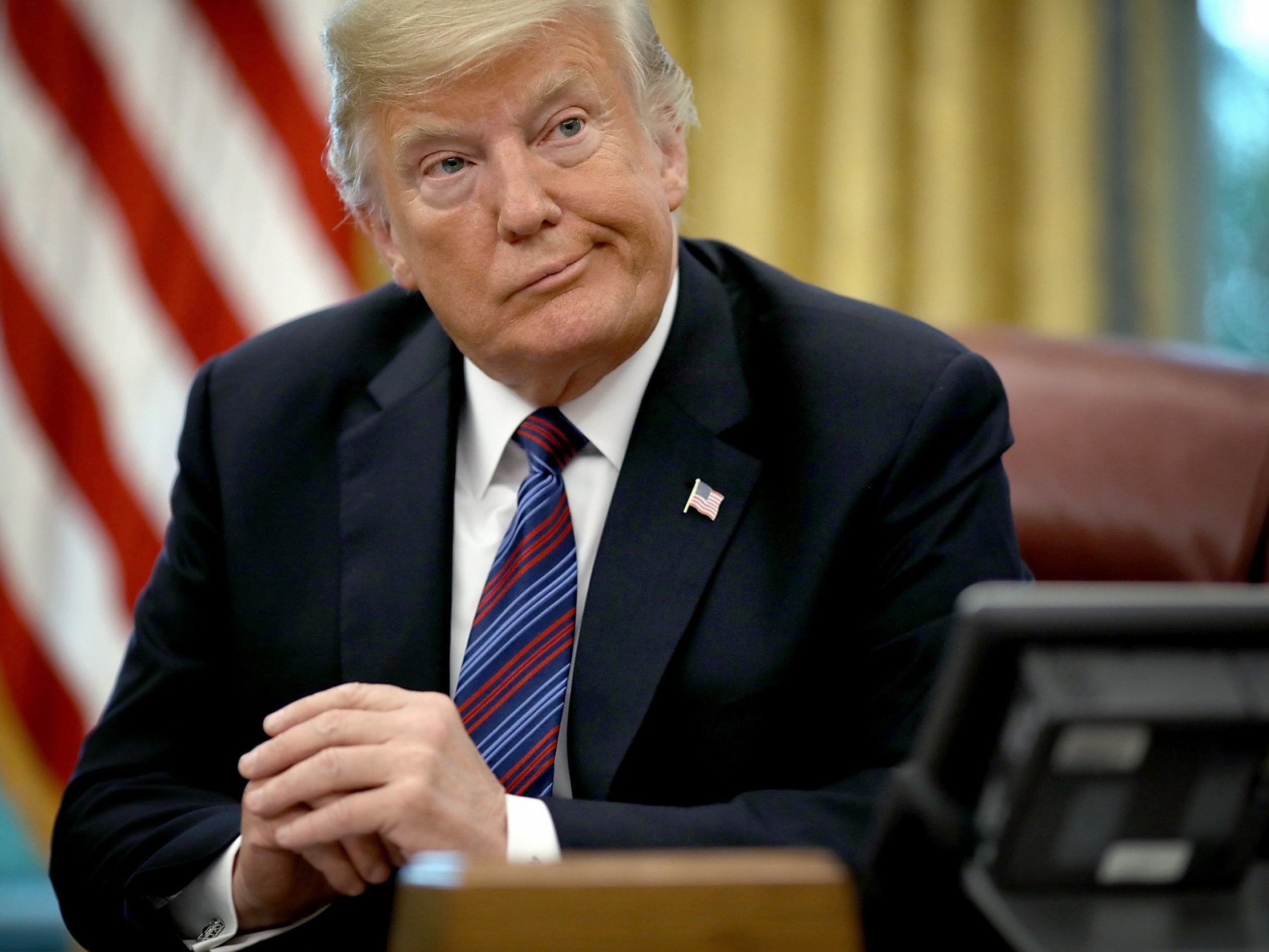Donald Trump announces new Mexico trade agreement while promising to terminate Nafta
It is not clear that Canada, which is a signatory on Nafta, will agree to a revised trade deal with the United States and Mexico

President Donald Trump has announced that the United States and Mexico have reached a preliminary trade agreement that he says will replace the existing North American Free Trade Agreement (Nafta), and benefit citizens of both countries.
The agreement was announced in the Oval Office on Monday, where the president spoke to Mexican President Enrique Peña Nieto via speaker phone. Mr Trump said that he will now begin negotiations with Canada, and said that the existing name for the current trade deal will be terminated entirely.
“They used to call it Nafta, we’re going to call it the United States-Mexico trade agreement,” Mr Trump said, claiming that Nafta has a negative connotation.
It is not clear if Canada will be a part of any revised agreement to trade policy between the countries, but Mr Trump indicated that a failure to negotiate would lead to heavy tariffs on autos coming into the United Sates its neighbours to the north.
But, Mr Trump said that he will now focus his negotiating energies on reaching an agreement with Canada, and would be speaking with Prime Minister Justin Trudeau soon. If they are unable to come to an agreement on trade, Mr Trump said, then he would be forced to put in place steep tariffs on imported autos from Canada.
In response to the Oval Office event, a spokesperson for Canada's minister of foreign affairs indicated that the country is encouraged by the agreement reached between the presidents of Mexico and the US — but stressed that Canada would need to be party to any actual changes to Nafta.

"Canada is encouraged by the continued optimism shown by our negotiating partners," the spokesperson said. "Progress between Mexico and the United States is a necessary requirement for any renewed Nafta agreement. We are in regular contact with our negotiating partners, and we will continue to work toward a modernised Nafta. We will only sign a new Nafta that is good for Canada and good for the middle class. Canada's signature is required".
Experts weighed in on Monday to praise the push to modernise the existing trading agreements between the US and its North American partners, but suggested that pushing a deal without the consent of Canada could revert circumstances to a more fractured, pre-Nafta era.
"When one adds in the effect of changes in the way markets operate as a result of technological developments like the internet, trade patterns have developed in ways that have produced uneven benefits among the various industries as well as among the three Nafta countries. So a rethinking is certainly timely if not overdue," Steve Nelson, a former State Department lawyer who is now partner at the international law firm Dorsey & Whitney, told The Independent.
"But going back to the more fragmented pre-Nafta markets would clearly have made no sense, as that would have upset the plans of businesses that have made very logical decisions predicated on the enormous opportunities and efficiencies Nafta afforded," Mr Nelson continued.
The agreement announced on Monday focuses narrowly on auto manufacturing, but the president suggested that the deal could end up standing in for Nafta. The deal would require 75 per cent of automobile parts and content to be made in the US or Mexico, up from current levels of 62.5 per cent. The deal also stipulates that 40 to 45 per cent of auto content be made by workers who earn at least $16 an hour, according to Reuters.
"It's a big day for trade. It's a big day for our country," Mr Trump said.
The reported deal between Mr Trump and his Mexican counterpart is by no means finalised, in spite of the celebratory mood in the Oval Office.
As the president himself noted, the deal must be sent to Congress and would then undergo a 90-day process before it could be approved. The president also does not have the power to unilaterally strike a new trade deal without the approval of Congress — a limitation on presidential power that kept his predecessor from pushing through the Trans-Pacific Partnership trade deal.
Join our commenting forum
Join thought-provoking conversations, follow other Independent readers and see their replies
Comments
Bookmark popover
Removed from bookmarks